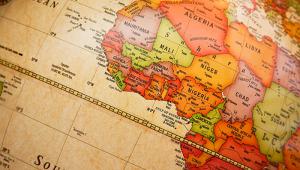The 2015 MDG Report, released at the event in the Democratic Republic of Congo, said remarkable progress has been made in the 15 years since the United Nations established the MDGs, but development has been uneven across regions and countries leaving significant gaps.
In the report’s foreword, Nkosazana Clarice Dlamini Zuma, chair of the African Union Commission, Carlos Lopes, UN under secretary general and executive secretary of the UN Economic Commission for Africa, Akinwumi Adesina, president of the African Development Bank and Helen Clark, administrator of the UN Development Programme, wrote that, as the global community looks to implement the new Sustainable Development Goals, it is time to reflect on the lessons learned from the MDGs.
“An important lesson from the MDG experience is that initial conditions influence the pace of progress a country can make on global development agendas. Thus it is not surprising that Africa as a whole will not achieve all the MDGs by 2015,” they wrote.
For example, the UN announced that the first MDG target of reducing by half the proportion of people living in extreme poverty was achieved globally five years ago.
In places like South Asia, where extreme poverty rates fell from 51% in 1990 to 17% today, this is true. But in Sub-Saharan Africa extreme poverty levels (defined as the number of people living on less than $1.25 per day) have fallen by just 16 percentage points, from 57% in 1990 to 41% today.
The region has however made the greatest progress in primary school enrolment, with its enrolment rates growing from 52% in 1990 to 78% in 2012.
While developing regions as a whole have achieved the target on eliminating gender disparity in all levels of education, the report argues that significant differences remain across regions and countries which cancel each other out when aggregated.
Gender gaps in wages and employment also persist, the report said, although the proportion of women earning an income outside the agricultural sector has increased to 41% from 35% in 1990.
Again, while maternal survival has improved significantly, the report notes that hundreds of women still die during pregnancy or childbirth every day.
Takyiwaa Manuh, director of the UN Economic Commission for Africa’s social development policy division, told the event that significant gains has been made under the MDGs, which had affected “development discourse” and improved the “targeting and flow of aid”.
She echoed the words of the report’s foreword and said lessons needed to be learned in order to make a success of the SDGs.













